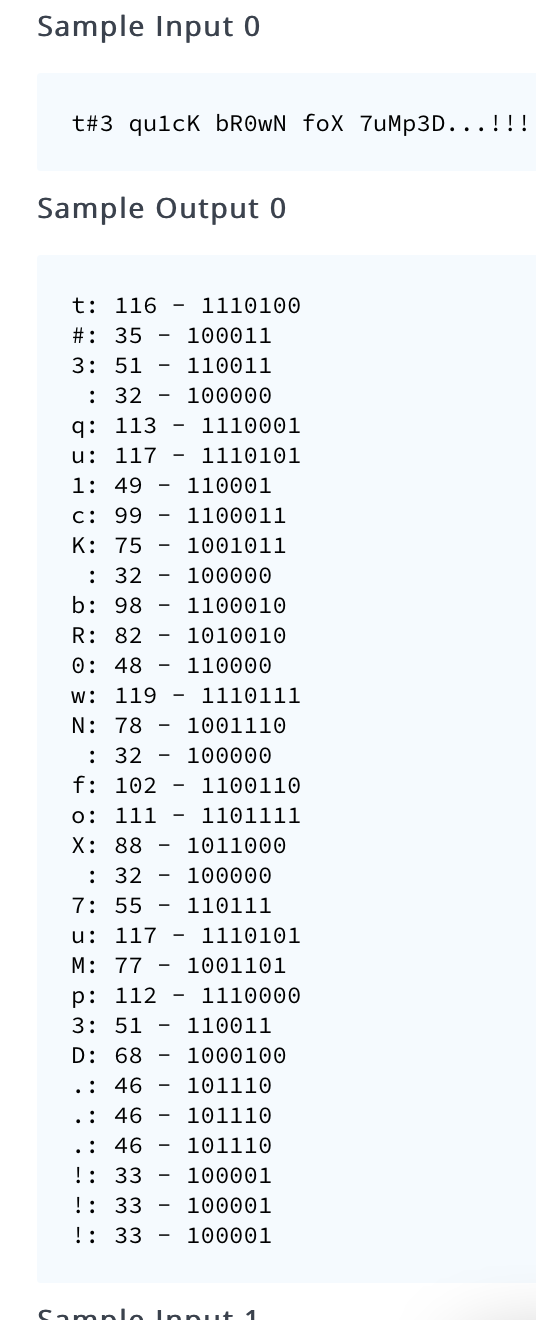Hi experts, need your help with Python. Code guide is given at the picture and sample input and output. Using char_to_ascii(), write a program that converts each character in the given string word into its integer counterpart (ASCII decimal value) and returns them in the list ascii_values. Using ascii_to_binary(), write a program that will convert the given list, ascii_values, into strings containing their binary values and return the converted values in the list binary_values. e.g. the list [4, 3, 1] will be returned as [‘100’, ‘11’, ‘1’]] Input Format The user will enter the sentence in one line. Example: t#3qu1cKbR0wNfoX7uMp3D...!!! Constraints The given word will only contain characters from the ASCII table with values between 32 and 126. len(word) Output Format The program will print one line for each character from the user input with the following format: :-
Hi experts, need your help with Python. Code guide is given at the picture and sample input and output.
Using char_to_ascii(), write a
Using ascii_to_binary(), write a program that will convert the given list, ascii_values, into strings containing their binary values and return the converted values in the list binary_values. e.g. the list [4, 3, 1] will be returned as [‘100’, ‘11’, ‘1’]]
Input Format
The user will enter the sentence in one line.
Example:
Constraints
The given word will only contain characters from the ASCII table with values between 32 and 126. len(word)
Output Format
The program will print one line for each character from the user input with the following format:

![def char_to_ascii(data_list):
ascii_values= []
for value in data_list:
converted_value
### Do not modify anything above this line ###
# insert your code here #
### Do not modify anything below this line ###
ascii_values.append (converted_value)
return ascii_values
def ascii_to_binary(data_list):
binary_values= []
for value in data_list:
converted_value = ''
### Do not modify anything above this line ###
# insert your code here #
### Do not modify anything below this line ###
binary_values.append (converted_value)
return binary_values
if
-_name__
"__main__":
input()
==
word =
ascii_data = char_to_ascii(word)
binary_data = ascii_to_binary (ascii_data)
for character, ascii, binary in zip(word, ascii_data, binary_data):
print('{}: {} - {}'.format(character, ascii, binary))](/v2/_next/image?url=https%3A%2F%2Fcontent.bartleby.com%2Fqna-images%2Fquestion%2Feb6e5c38-a555-445d-a8a8-e8c0b1acef8f%2Fe34b81b1-4d55-4d2f-97bd-8c31db6ebd29%2Fi1h9bwj_processed.png&w=3840&q=75)
Step by step
Solved in 2 steps with 2 images









